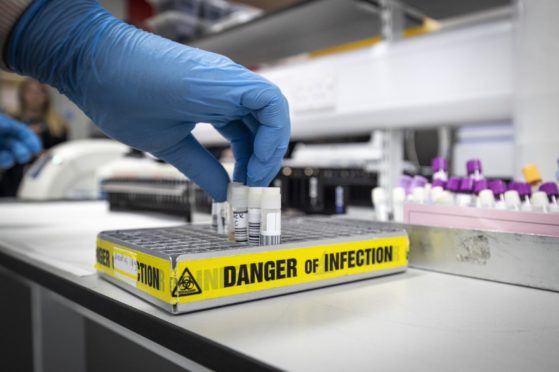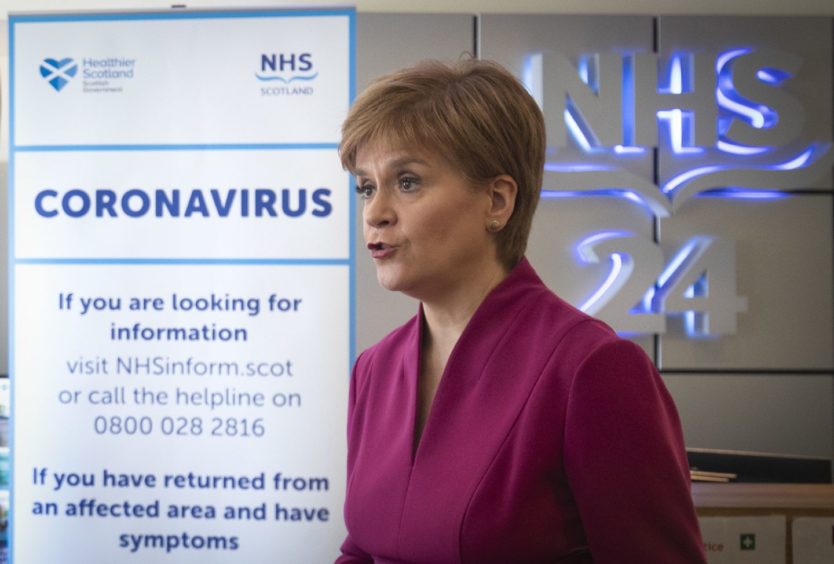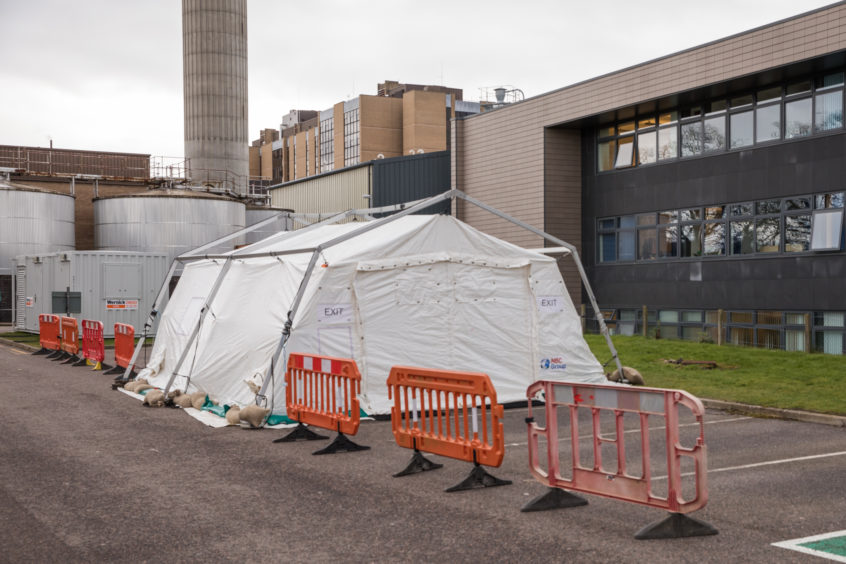Two more coronavirus cases have been confirmed in Scotland.
A total of 1957 tests in Scotland have now been concluded, with 18 found to be positive.
The Scottish Government confirmed the additional cases on Sunday, after First Minister Nicola Sturgeon predicted the number could rise “rapidly” in coming days.
There have now been four confirmed cases in Grampian, three in both the Greater Glasgow and the Lothian health board areas, two each in Lanarkshire, Fife and Forth Valley, one in Ayrshire and one in Tayside.
Update on #coronavirus testing
As of 2pm today 1957 Scottish tests have concluded:
1939 confirmed negative
18 positiveRead our latest update ➡️ https://t.co/mzZ2ib2i9I…
Health advice ➡️ https://t.co/l7rqArB6Qu
Guidance for travel ➡️ https://t.co/1f1yJHi4iO…#COVID19 pic.twitter.com/n5PdkmbNgJ— Scottish Government (@scotgov) March 8, 2020
Earlier today, Ms Sturgeon told the BBC about contingency plans being worked up by the Scottish Government in case the spread of coronavirus continues to escalate.
Asked about any move to close schools at short notice, Ms Sturgeon confirmed that all options were being considered.
“There has been a lot of talk of school closures and clearly that is one of the measures that has been implemented in other countries, and it is one of several measures that could be considered here,” she said.
“But I want to stress that there has no decision been taken on that.
“We’re seeking to make sure we’re taking decisions in good order, but also that we’re taking decisions that are really strongly underpinned by scientific advice.
“There are quite difficult balances and quite difficult judgements to be made here.”
The SNP leader also spoke about proposals to ensure the health service can cope with a surge in demand during the outbreak, although she emphasised that most people who became infected would have mild symptoms.
“The kind of things the NHS plans for is, yes, if necessary, to postpone non-urgent treatment to make sure that the capacity is there for more urgent cases, people who need hospital care,” she told the BBC’s Politics Scotland programme.
“We’re also looking at plans that would allow us to increase capacity, not just general hospital capacity, but increase intensive care and high dependency capacity as well, so that those services are there.
“So there are a whole range of things that are under consideration and will move into implementation.”
Not all of these things may prove to be necessary, but it is important that we’re planning for worst-case scenarios.”
Pressed on how capacity could be increased, Ms Sturgeon said: “There are facilities that we can use that are perhaps not used routinely.
“You will have heard in recent times talk of perhaps encouraging – if necessary, and I keep stressing that – healthcare workers who have retired from practice to come back in, so we’ve got additional staff.
“It may require procuring additional equipment.
“The point I’m making is that there are plans in place that are being carefully refined and worked through right now.
“Not all of these things may prove to be necessary, but it is important that we’re planning for worst-case scenarios.”
Ms Sturgeon added that efforts were being made to protect vulnerable people during the outbreak.
“We’re looking very closely at what the Scottish Government can do within our own powers and resources, and anything we can do we will do,” she said.
“But much of the power here lies in the hands of the UK Government, and we’re having constructive discussions.
“I would hope to see in days to come more announcements like the one on statutory sick pay last week. I think the rules around Universal Credit for example need to be relaxed.
“We don’t want people who are doing the right thing, self-isolating to limit the spread of this virus, being sanctioned in terms of their benefits.
“There are good discussions under way on all of this.
“The UK Budget this week is important, because I think inevitably this will require additional resources being made available by the UK Government.”



